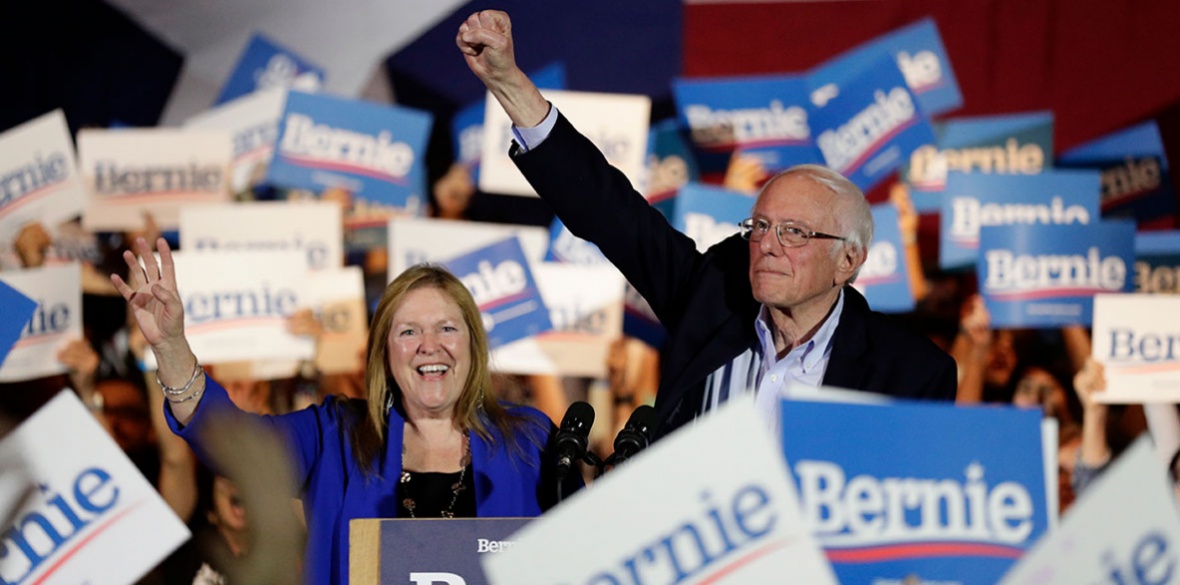BERNIE Sanders has won the Nevada primary and won it well. He scored heavily among young voters and among Latinos. More importantly his appeal was right across the Democratic electorate in this rather distinctive state.
Las Vegas, pictured as the gambling and gangster centre of the desert state is, in fact, a union stronghold with some 57,000 members of the Culinary Workers Union alone.
Union membership is a bit above the national average and union organising in a state like Nevada is a tough call. The distinctive feature of this state poll was that union members did not follow the lead of their union, which advised against a vote for Sanders on rather spurious grounds that his universal health care scheme would undermine their existing contracts, and the dissident senator finished well in front.
Bernie Sanders’s latest win, following his topping the poll in Iowa, cements his position as the man to beat. And he looks increasingly hard to beat. Not that the powers-that-be are not trying rather desperately.
Joe Biden, the Democratic Party establishment favourite, is losing the plot as well as the nomination. He barely scraped by in Nevada with just enough electoral credibility to continue soaking up big business billions.
Faced with the desperate situation in which Sanders’s challenge might this time carry the day against both the dead-beat bid by Biden – and a barrage of bureaucratic dirty tricks — party bigwigs first put their hopes in Pete Buttigieg. The growing consensus seems to be that he doesn’t have enough gas in the tank to carry him through the roll call of state primaries. Hence the late buy-in by the Bloomberg billions.
Unless Biden bigs up quickly in the Super Tuesday primaries — and if Bloomberg’s bid settles down as the preferred strategy of the party managers — the Democratic Party nomination will boil down to a contest between a former Republican Party billionaire and an independent socialist equally without his roots in the Democratic Party per se.
Sanders is coming under a predictable attack for being a communist. This he is manifestly not.
By any objective measure he is a mildly progressive social democrat of the traditional type. Some of his foreign policy positions remain blind to the imperialist essence of the US’s global role but on domestic policy his challenge to the system is real enough.
Like Donald Trump he is more or less opposed to foreign wars — especially if these involve disproportionate tallies of American lives — and like Trump part of his insurgent appeal is to that layer of North American workers whose livelihoods are threatened by the neoliberal policies that unite the core elements in the US ruling class coalition.
Where Sanders represents a threat is in the way in which his campaign — which is conducted with a language of class, resistance and insurgency — has the potential to redraw the map of US politics and end the duopoly of the rich.
If some of this seems familiar it is because the US has hitherto been ruled by the same neoliberal consensus which made David Cameron and Tony Blair brothers of a kind while separating out David and Ed Miliband into brothers of a different kind.
There are no exact parallels between class politics in Britain and the US but one factor is constant.
If the existing capitalist system cannot concede basic job security, housing, education and health services and promise peace and an end to discrimination without a deep crisis of the political system then these societies are ripe for the more profound changes that working-class political power and socialism would bring.










